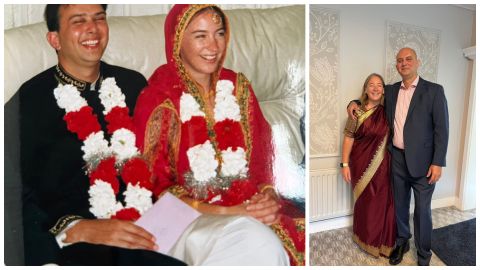How to support Muslim colleagues during Ramadan
As Ramadan begins this weekend, this comms agency CEO offers advice on how PRs can become better allies to their Muslim colleagues and employees during the Islamic holy month and beyond…
Working in PR/comms, we all know that the media is based on what sells. Sadly, this tends to be toxic headlines. The UK’s Islamic and Muslim community have had more than their fair share of negatively-biased coverage in recent years. It’s all contributed to a landscape where British Muslims not only struggle to be hired in the PR industry (which suffers from a chronic lack of diversity anyway; we’ll leave this for another blog post) but has also led to them being discriminated against in society and the workplace.
For example, did you know that CVs submitted under non-Muslim names are three times’ more likely to be offered an interview than those with Muslim-sounding names? Or that more than two-thirds (69%) of UK Muslims in employment report experiencing workplace Islamophobia? And that 30% of Muslim workers in Europe have been verbally harassed while at work?
With Ramadan starting at the end of this week [Friday 28 February or Saturday 1 March depending on the sighting of the moon] and set to conclude at the end of March, the Islamic holy month provides the perfect opportunity for those working in the PR industry to help their organisations become better allies to the Muslim community.
My story
But first a little personal story, which should hopefully demonstrate that humanity and compassion (and yes, love) can go a long way in dismantling those unhelpful myths.
I converted (also known as reverted) to Islam nearly 25 years ago, shortly before marrying my husband Nav Quddoos. We met at 16. I don't know whether it was love at first sight, but I do know we became instant friends.
Nav was destined for an arranged marriage so us being anything more than friends was off the table. But over the next 13 years we became inseparable soulmates, trying very hard not to fall in love with each other; we even tried living in different countries.
All that time, I was a secret from his family. However, as Nav got older, his parents started putting pressure on him to marry. Eventually, scared they might disconnect him from the family, he came clean that he wanted to marry a Catholic girl.
My first meeting with his parents was unbelievably nerve-wracking. We discussed cultural differences, compromises, faith, children and more. While we were navigating all these tricky topics, we also found we were getting along famously well. It wasn’t long before I introduced them to my regular church-going Catholic parents.
Together we all navigated our differences, enjoying discovering new traditions, foods, clothes and finding all our commonalities, particularly in our family values.
After converting (reverting) to Islam, we had weddings both here and in Pakistan. We have honoured and blended both cultures and faiths in our home as we’ve brought up our three children. We celebrate both Eid and Christmas. Better still, we've created our own mashed-up traditions…. pakora and scones for afternoon tea anyone?

Tips for Ramadan
But back to Ramadan 2025. If you’re working alongside colleagues who are fasting for Ramadan, there are lots of ways you can show your kindness and help them feel supported. Thoughtful communication and an inclusive workplace culture can make a real difference in how supported your Muslim colleagues feel. Here’s some tips:
• Go easy. The first few days of fasting for Ramadan can be super-hard, as the body is getting used to the changing patterns. Headaches can be a regular feature. Compassion and flexibility during this time will be deeply appreciated and won’t be forgotten either.
• Raise awareness. Share information about Ramadan so teams can plan with inclusivity in mind.
• Don’t make assumptions. Not every Muslim will fast. If someone isn’t fasting, don’t ask why. There are many reasons for people not fasting, including illness, pregnancy, breastfeeding, menstruation, or personal choice.
• Be considerate of meeting times. Where possible, ask any colleagues who are observing fasting what times might work best for them.
• Offer flexibility. Where business needs allow, consider adjusted working hours or remote work options.
• Encourage open conversations… but also remind people to inform themselves. Before asking a question, consider whether a quick Google search could help. Aim to learn with compassion rather than ‘othering’ colleagues out of curiosity.
• Recognise Eid too. Eid al-Fitr [evening of Sunday 30 March] is the festival of breaking of the fast, which marks the end of Ramadan. Acknowledge it and show your understanding and respect for its importance.
Creating a culture where Muslim colleagues feel truly supported and respected during Ramadan can go a long way in building a more inclusive workplace for us all. And at a time when even British companies are rolling back on their DEI initiatives, that’s needed more than ever.
Ramadan Mubarak!
Sally Pritchett is CEO and co-founder of Surrey-based creative comms agency Something Big.
Find out more
The CIPR offers a module on the why, what, and how of inclusive language in public relations.
.gif)
